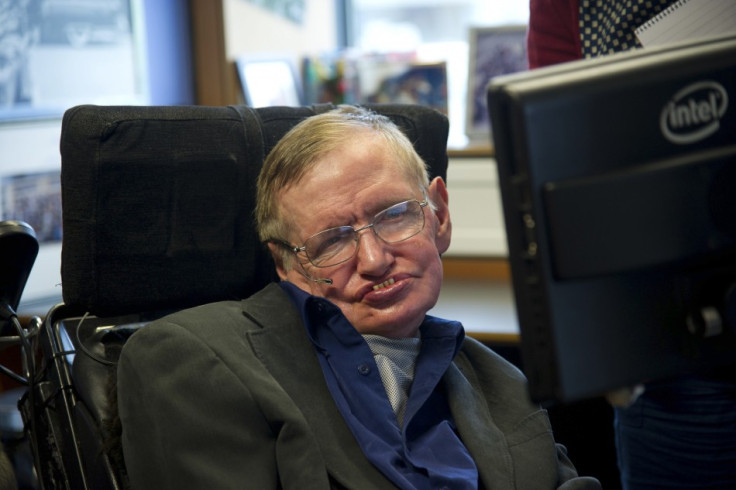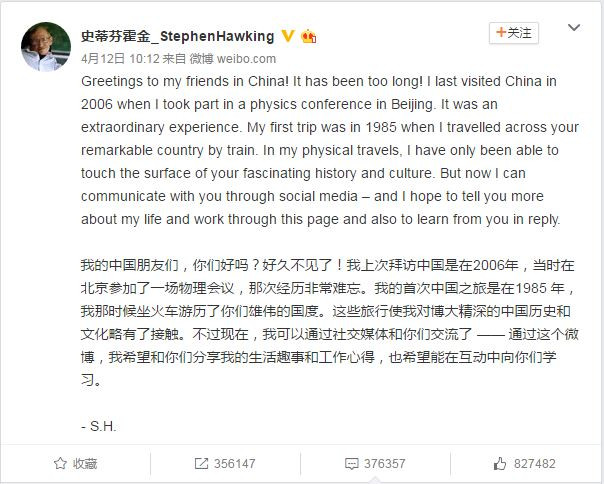Stephen Hawking gains 'godlike' status on Weibo, gaining 2.5m followers in 24 hours

Famed theoretical physicist, cosmologist and author Stephen Hawking joined the world of Weibo this week and has been met with a truly stellar reception. Less than 24 hours of his account going live Hawking, who enjoys somewhat of a cult status in China, had racked up more than 2.5 million fans on the micro-blogging site.
Hawking's introductory post, written in both English and Chinese, reads: "Greetings to my friends in China! It has been too long! I last visited China in 2006 when I took part in a physics conference in Beijing. It was an extraordinary experience.

"My first trip was in 1985 when I travelled across your remarkable country by train. In my physical travels, I have only been able to touch the surface of your fascinating history and culture. But now I can communicate with you through social media – and I hope to tell you more about my life and work through this page and also to learn from you in reply."
Weibo is China's largest social media website, with more than 500 million registered subscribers and over 100 million daily users.
According to Xinhua News Agency, Hawking enjoys a celebrity-like status in China "much like that of Tom Cruise." His inaugural post has already accrued over 820,000 thumbs-ups – Weibo's equivalent of a Facebook or Twitter 'like' - 355,000 shares and more than 375,000 replies. Users have largely welcomed the scientist's arrival, with varying levels of enthusiasm. "Welcome to Weibo," wrote one user, while another, more avid fan opted for "hello God."
Others took the opportunity to hear the physicist's thoughts on the existence of aliens and America's involvement in covering up visits from extra-terrestrial travellers. If Hawking does have any knowledge of such goings-on, however, it seems he's staying tight-lipped for now.


Hawking also used the platform to divulge details on the recently-announced Breakthrough Starshot project, a £100m ($142m, €126m) initiative that hopes to blast spacecraft 25 trillion miles into the cosmos at 20% of the speed of light.
"Albert Einstein once imagined riding on a light beam, and his thought experiment led him to the theory of special relativity," he wrote. "A little over a century later, we have the chance to attain a significant fraction of that speed: 100 million miles an hour. Only by going that fast can we reach the stars on the time-scale of a human life.
"It is exciting to be involved in such an ambitious project, pushing the boundaries of ingenuity and engineering."
© Copyright IBTimes 2025. All rights reserved.






















